Royal Navy vessel HMS Puncher went to the rescue of a stricken fishing boat while carrying out training off Plymouth, say the Royal Navy.
Without power and unable to radio for help, the fishermen on the troubled boat had to use their mobile phones to alert the Coastguard, as they drifted dangerously towards the coast.
According to the Royal Navy in a news release:
“The Coastguard then requested other vessels within the vicinity to assist. HMS Puncher, a P2000 of the Coastal Forces Squadron, was conducting routine navigation training for Young Officers around the Devon and Cornish coasts. Puncher responded to the call and immediately proceeded to the fishing boat’s last known location. But without any power, the fishing boat could not give an accurate location of where they were as they continued to drift towards the rocky shore. After several searches of incorrect locations, a google map screenshot from the fisherman’s mobile phone aided in finding the small fishing boat.
Bringing them alongside, HMS Puncher’s crew set about assessing the situation and carrying out repairs. The Naval engineers got to work on fixing the engine, the inventive seamanship skills of the Navigator’s Yeoman secured the boat and the Young Officers onboard dealt with the welfare of the fishing boat’s crew. A repair to the engine of the fishing boat was attempted, however, within 100 metres she broke down again and HMS Puncher towed the fishing vessel safely into Plymouth. The whole rescue lasted more than five hours.”




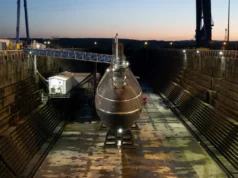
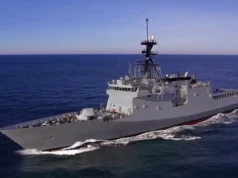
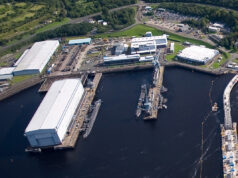


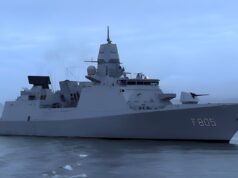
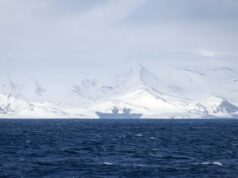
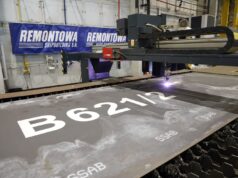
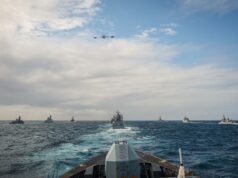

Very good, I like the p2000, a little lacking on the speed side though. I wonder what we will eventually replace them with, and it’s obvious we will probably get fewer replacements… Maybe the RN will fall below 70 vessels in future! and when the batch 1 patrol boats also go. I’ve always like the look of the RNLI Severn class with a few upgrades they would be ok for coastal patrols ect https://en.wikipedia.org/wiki/Severn-class_lifeboat#/media/File:Severnclass.jpg
The p2000 hulls were designed to do 45kn max but with the engines they fitted only do 25kn max! What were they thinking! And once again fitted for a 20mm cannon but never got them!
What they were thinking is they were to be used for training students, not frontline patrol duties therefore didn’t need bigger engines or 20mm cannon. 32 years ago that was probably a sensible decision.
Replacement, if it happens, hopefully will allow a more multipurpose vessel.
Love these boats, spent time serving as cox on Archer when she was with the RNR HMS Camperdown in Dundee, although vindaloos and beers for the crew overnight was not a good idea. Still remember with good memories some combined exercises with the RAF and SAS in the Tay and the beers afterwards up Aberdeen way.
Only a pity I never got to get my hands on one that had the proper engines, 45knots flat out would have been so much fun, the 25 knots would bounce you around in a small sea but 45knots, rollercoaster time. Funny but I never got seasick on Archer, Helmsdale however my head would be over the side even if the North Sea was like a pond. Never did understand why, I would think it should be the other way around.
Hope that we can keep some of these boats when they have finnished there duty, possibly give a few to the Sea Cadets and MVS and replace them with something like the Finnish Hamina class. They would give the RNR, officer cadets and coastal forces, Gib and Cyprus some real clout. But at a cost of £100 million each could we afford £1.6 billion for a one to one replacement, 16 boats. Then again two boats per year is not to much, we just spent £500 million on the wrong sat system. As for upkeep, we can afford the yearly operational cost of £80 million for 16 boats but the buy in? Then again with two allocated to a T31, another two in Gib and four independents in the UK It would give useful overseas squadrons for example the gulf, leaving the T26s T45s for blue water carrier roles.
Hugely off topic, but not sure why you believe a LEO satellite network isn’t suitable for GPS, aside from the orbits where current major networks operate?
From the Janes article linked below, the Pentagon expects to establish a LEO satellite network to among many other functions include a “… Navigation Layer to provide US armed forces alternative position, navigation, and timing (A-PNT) capabilities in GPS-denied environments, the documents stated.”
There may be a number of strategic objectives for the UK behind directly engaging in a LEO network operator.
https://www.janes.com/defence-news/news-detail/pentagon-solicits-proposals-for-new-hypersonic-advanced-warning-system
It was something I saw in a report yesterday,
I copied it here from National Technology in full
The UK government’s investment in OneWeb has been described as “nonsensical” by experts, who say the company makes the wrong type of satellite.
The 20 per cent stake was intended to mitigate the UK’s loss of access to the EU’s Galileo satellite navigation system after Brexit.
But all major satellite positioning systems operate in a medium Earth orbit of approximately 20,000 km from the planet, while OneWeb’s satellites operate in a low Earth orbit 1,200km up.
The Guardian spoke to Bleddyn Bowen, a lecturer in international relations and space policy expert at the University of Leicester, who said: “The fundamental starting point is, yes, we’ve bought the wrong satellites – OneWeb is working on basically the same idea as Elon Musk’s Starlink – a mega-constellation of satellites in low Earth orbit, which are used to connect people on the ground to the internet.
“What’s happened is that the very talented lobbyists at OneWeb have convinced the government that we can completely redesign some of the satellites to piggyback a navigation payload on it – it’s bolting an unproven technology on to a mega-constellation that’s designed to do something else. It’s a tech and business gamble.”
Bowen added: “If you want to replace GPS for military-grade systems, where you need encrypted, secure signals that are precise to centimetres, I’m not sure you can do that on satellites as small as OneWeb’s.”
A government spokesperson responded: “We have made clear our ambitions for space and are developing a new national space strategy to bring long-term strategic and commercial benefits to the UK – we are in regular discussions with the space industry as part of this work.”
OneWeb filed for bankruptcy in March in the US, where most of its operations are located, after failing to secure new funding. However, the company has continued launching its network of satellites, getting 34 satellites aboard a Soyuz launch vehicle from Kazakhstan in February, as part of its phase one constellation of 648 satellites designed to deliver high-speed, low-latency global internet connectivity.
Previously, the UK planned to build its own global navigation satellite system, at an estimated cost of between £3 billion and £4 billion. But in May this year that project was put on hold, weeks before a feasibility study into the scheme was due to be published, as its estimated cost rose to £5 billion.
Steve, thanks for posting the response. I suspected your reference was something similar as I had also read the same comments by Bleddyn Bowen at University of Leicester. It seems he may not be as knowledgeable as he believes himself to be, or more charitably is unnecessarily restricting himself to a short term perspective only.
I believe a One Web network might be leveraged by UK govt. both for soft and hard power benefits. The hard power is in part covered by the previous article I linked. The soft power would be the ability to support internet access to poor countries with large rural populations, a major economic activity enabler. It also has significant synergies to other govt. programs such as development of a domestic space launch industry, more affordable Skynet replacement in due course, etc., not necessarily using the same LEO satellite network as used for commercial ops.
GHF, the thing that has me concerned is the comment that OneWeb has filed for bankruptcy in the US.
Yes OneWeb filed for Chapter 11 protection from creditors while it reorganizes and sells itself. The UK bid is in concert with others in order to buy Oneweb out of bankruptcy. It doesn’t mean the UK bid will win, the bankruptcy judge makes that determination typically based on maximising recovery for creditors, but if it doesn’t then the UK hasn’t lost anything.
The RN has been involved in a fair bit of SAR recently, with HMS Scott, HMS Chiddingfold, HMS Westminster, HMS Tyne, RFA Argus, RFA Tideforce and now HMS Puncher all helping people in distress at sea. BZ to all.
(Apologies if I’ve missed any ships!)